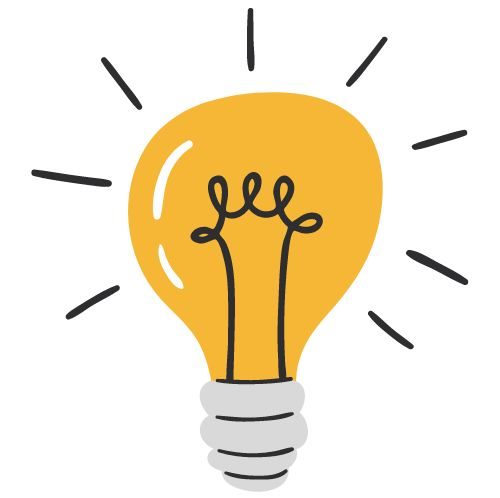Every part of the body needs exercise to stay fit and healthy, and the brain is no exception! A fun and effective way to stretch your mental muscles is to engage in brain teasers and mind-bending challenges. These include puzzles, optical illusions, and you guessed it: riddles.
People have been sharing, learning, and deciphering riddles for centuries. The oldest riddles are almost 4,000 years old, and are written in an ancient language! They have stood the test of time, not just cause they’re fun, but also because they benefit both the mind and body.
From boosting mood and beating stress to building great social skills, you’ll be surprised by how riddles can have a positive impact on your life. Here are ten benefits you won’t want to miss:
1. Expands Your Vocabulary

What makes riddles so interesting is their power to give plain sentences a silly, unexpected, or hidden meaning. Regularly reading riddles can expose you to a variety of new words and make them easy to remember—expanding your vocabulary becomes effortless!
Ranging from simple to sophisticated, riddles also challenge your reading comprehension. Most people can read a riddle, but to solve it, you’ll need to go further and ‘read between the lines.’
2. Enhances Focus and Memory
When working on a riddle, your mind enters a meditative state, diverting your full attention to the task at hand. In addition to enhancing your focus, this habit also exercises your working memory, testing your ability to remember tiny details and piece them together to solve the riddle.
So, if you have a foggy memory or have trouble concentrating at work, it’s a good idea to take a break and solve a few riddles before going back to your desk with a clear, focused mind.
3. Sharpens Problem-Solving Skills
Each riddle presents a unique problem for you to solve and learn from. It takes a bit of trial and error at first, but you’ll soon be familiar with the process of developing a possible solution, testing to see if it works, and changing your approach until you ultimately unlock the riddle.
It’s a fantastic opportunity to exercise your critical thinking and problem-solving skills. Both are greatly useful in real-life situations, so don’t be afraid to give your brain a workout!
4. Nurtures Creative Thinking

Do you want to learn how to think out of the box? Riddles are the best training ground for that! These mind-boggling questions, statements, or short stories usually have a double or hidden meaning and need lateral thinking and creativity for you to be able to solve them.
Different riddles require different approaches, and the experience will surely flex your mental muscles. Most of the time, you need to explore multiple interpretations to find the right answer.
5. Source of Fun and Entertainment
Successfully solving a riddle triggers the release of the feel-good hormone ‘dopamine’ in your brain. Dopamine is a neurotransmitter that’s primarily linked to pleasant sensations and the brain’s reward system. It impacts your mood, memory, and motivation.
Riddles can also keep boredom at bay in a healthy way, as no screen time is involved! Some of the very best ones can even make you laugh and provide hours of entertainment.
6. Provides a Sense of Accomplishment
There’s nothing quite like the feeling of figuring out an especially tricky riddle all by yourself, without needing to look at the answer key! The experience instills a sense of accomplishment and pride after you’ve spent considerable time trying to crack a puzzling question.
In the long run, overcoming obstacles and mental challenges like these can boost your self-esteem, empowering you to take on real-life problems with confidence.
7. Encourages Teamwork and Bonding

An activity for all ages, riddles can bring people together and be an awesome bonding experience for family members and friends. In the workplace, riddles and jigsaw puzzles can also build collaboration among coworkers and improve their relationships with each other.
Teaching riddles to kids allows them to interact with their peers, forming a solid foundation for good social skills. Plus, classroom lessons become much more interesting with brain teasers!
8. Speeds Up Your Reaction Time
In today’s fast-paced and ever-changing world, being able to think quickly and solve problems efficiently is a valuable skill to have. You can hone this skill by regularly engaging in riddles and gradually increasing your speed. Try using a timer or having a fun competition with your friends!
The more you practice solving riddles, the faster you’ll be able to process information, as your mind becomes familiar with all sorts of mental techniques.
9. Promotes a Healthy Mind and Body
Solving riddles can be a relaxing hobby and a way to unwind and de-stress. As you take your mind off your worries, your breathing and heart rate slow down and your muscles relax, lowering your risk of stress-related conditions like heart disease, obesity, and high blood pressure.
Medical research has also shown that keeping your brain active with mentally challenging activities like riddles may help prevent or delay symptoms of dementia and Alzheimer’s disease.
10. Fosters Lifelong Learning
Riddles provide a wealth of trivia, new vocabulary, and interesting information that’s hard to find anywhere else! Incorporating these mind-bending challenges into your everyday life keeps your brain constantly engaged so that you never stop learning and growing.
Lifelong learning contributes to better cognitive functioning. Like other types of brain teasers, riddles help diversify neural connections, making your brain more robust and resilient over time.
Reap the Benefits of Riddles Everyday
Now that you know the surprising benefits of riddles, it’s time to enjoy them! Start a healthy habit, and solve a few at your desk, on the train, or before bed, anytime and anywhere.
For your daily dose of the best brain teasers, check out the various categories here on Tease Your Brain. Riddle solvers, logic lovers, puzzle enthusiasts, math wizards, and masters of optical illusion are all welcome here!
